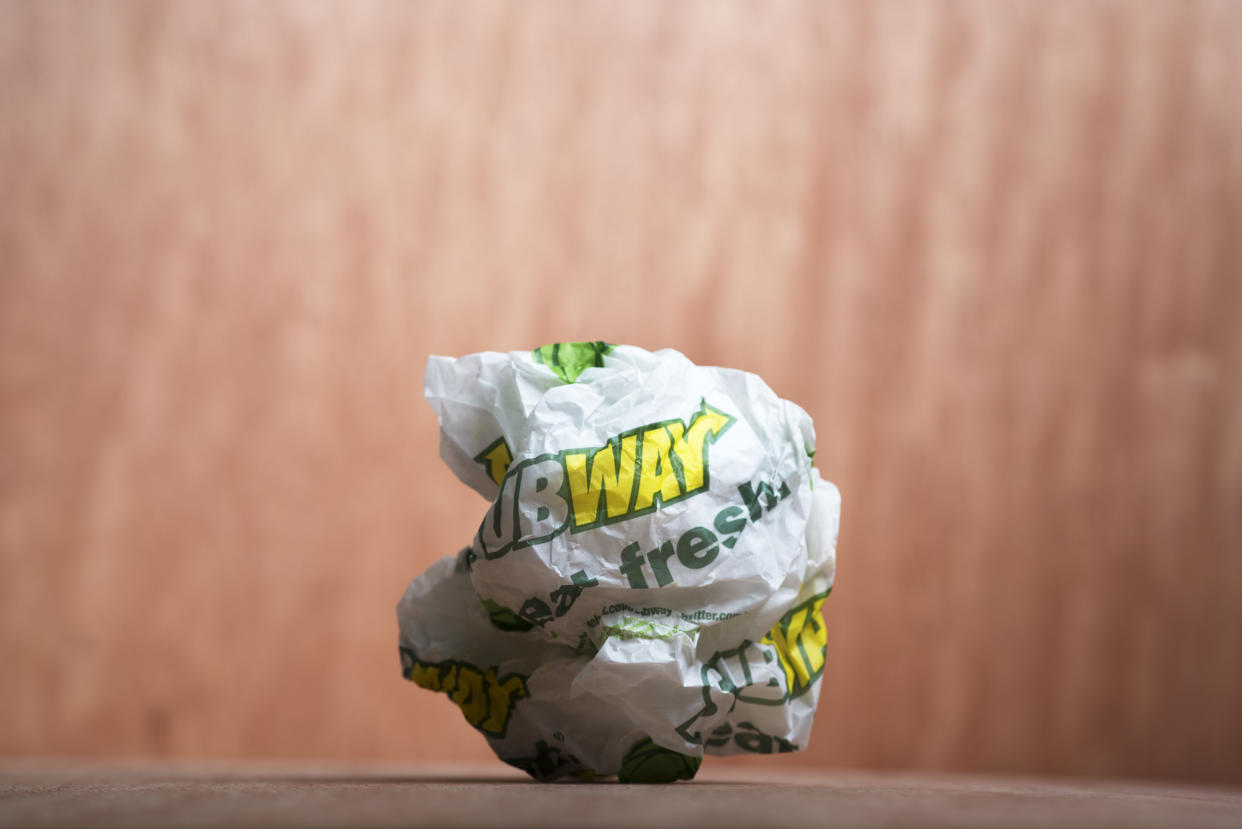Sen. Warren's food fight over a potential 'big sandwich' monopoly

- Oops!Something went wrong.Please try again later.
Despite all the diverse offerings and unique cultural niches they've carved for themselves over the past century or so, America's vast slate of fast food restaurants is largely predicated on the same basic model: A customer walks in, orders from the counter, and waits a minute or two while an employee constructs their meal from an assembly of pre-arranged components. Whether burgers, burritos, or roast beef sandwiches, the choreography is mostly the same, it's simply the ingredients that differ.
For Sen. Elizabeth Warren (D-Mass.), however, the structural similarities across various fast food chains are a secondary concern to the question of who owns those chains to begin with. In particular, Warren is worried about Roark Capital Group, the private equity firm which this past August announced a deal to purchase the Subway sandwich company for nearly $10 billion. Once completed, Roark will add Subway to its existing roster of ubiquitous sandwich chains, including Arby's, and Jimmy John's, as well as other brands such as Dunkin' Donuts, Culver's, and Hardee's.
Last month, Politico reported the Federal Trade Commission had opened an investigation into the Roark/Subway deal, probing whether the purchase would give the firm "too much control of a lucrative segment of the fast food industry." On X, formerly Twitter, Warren hailed the investigation — still in its early stages — writing that the public doesn't need "another private equity deal that could lead to higher food prices for consumers."
By highlighting the FTC's investigation, however, Warren has essentially thrown fuel on a burning food fight fire. In doing so, she has earned both plaudits and eye-rolls from across the political spectrum.
'Break up Big Sandwich'
Calling Warren's assertion that the Subway purchase could result in a monopoly "bizarre," The Washington Examiner argued that such an industry-wide cartel "is nearly impossible" in the United States, where "independent sandwich shops, grocery stores, restaurants, food trucks, and sandwich chains not owned by Roark Capital exist throughout the country." Wryly questioning Warren's invocation of McAlister's Deli by noting that the Roark-owned chain has "zero locations in Warren's home state of Massachusetts," the Examiner called the senator's effort an attempt to "break up Big Sandwich."
Subway is "basically a brand," consisting of independent small-business franchises which "benefit from the chain's national advertising" agreed conservative columnist George Will in The Washington Post. That Subway franchises often compete directly with neighboring sandwich shops — such as the Roark-owned Jimmy John's — raises the question of whether Warren's definition of a monopoly can "be riven by internal competitions, while surrounded by external competitors?"
Warren has scored "new points for pettiness," according to Reason's Christian Britschgi, particularly given how "broad (and therefore meaningless) the word 'monopoly' has become in modern political discourse." Not only are sandwich shops already in fierce competition among themselves, but "they also compete with "all manner of other restaurants selling hamburgers (technically also a sandwich), hot dogs (debatably a sandwich), burritos (not a sandwich), salads, soups, Asian rice bowls, Mediterranean rice bowls, and more."
'It's an illusion of choice'
Warren is right to want a probe into a deal that would hand control of a sandwich empire with "more than twice the footprint of either McDonald’s or Starbucks" to a private equity firm like Roark, countered MSNBC's Helaine Olen. For as much as proponents of the purchase argue that there are still multiple separate brands coexisting under one owner, that's "not really any choice at all," Open Markets Institute Chief Economist Brian Callaci told Olen. Instead, it's merely "an illusion of choice."
The FTC's investigation is "emblematic of the agency's increased focus" on "both deal-making by private equity firms and prices of consumer staples," under current chair Lina Khan, Politico reported. Although the agency has some previous success blocking deals, "it has yet to win a merger challenge in court" under Khan's leadership, which is "upping the pressure to bring home a litigation win." Meanwhile, these types of investigations "can often take a year or more" before reaching some form of resolution, whether through agreed-upon changes in the deal itself, or a lawsuit to block the merger entirely, according to Politico.

